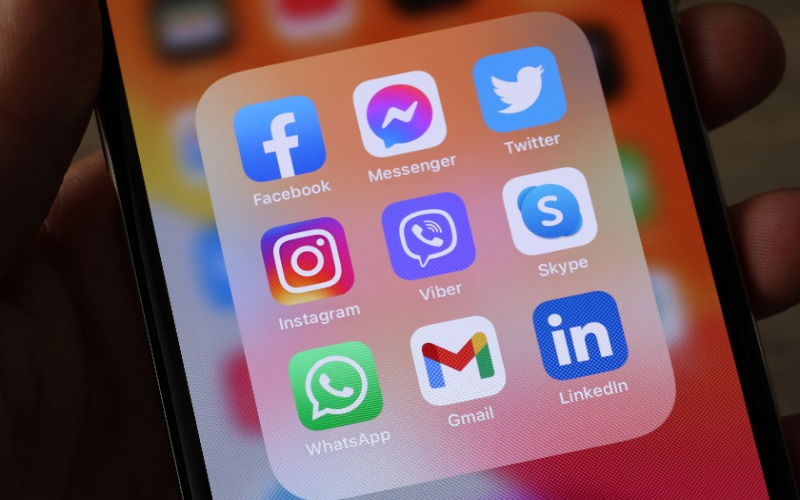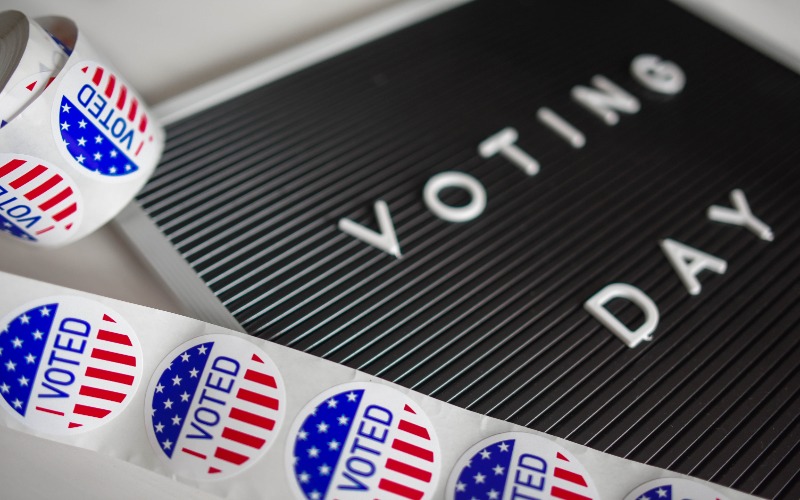Governments, politicians, and other organizations use technology to maximize their resources, brands, and messaging to mobilize, attract, influence, and persuade others to join and support their causes. This can be particularly impactful in the political world.
Through technology, politicians can access funds, connect with the public, improve targeting, and reduce campaign costs. Those who know how to leverage the current technologies effectively can attract and engage with young people in new and exciting ways. Politicians who use technology to increase awareness and appeal to constituents will reap the rewards, while those who stay with traditional media outreach won’t be able to keep up.

One expert who has seen first-hand how new technologies have transformed politics is Manish Sharma, a lead DevOps and systems engineer with nearly two decades of experience with system administration, platform engineering, and building infrastructure automation solutions. “Politics and technology go hand in hand,” Sharma says. “Today, campaigns are driven by newer technologies like social media, which helps politicians reach both broader and more specific audiences.”
Technology Lends a Personal Touch
Previously, campaigning was primarily limited to traditional media, like print, television, radio, or in-person events such as rallies or canvassing. Even with online versions of these media, the format was relatively similar: the public could tune in to or attend live scheduled events or read media crafted by either a reporter or a politician.
“Fifteen to twenty years ago, the majority of campaigning was done either in person or with traditional media,” Sharma says. “Politicians would attend public rallies or events or go on television news, neither of which was available on demand to the public.” He says these methods cast a broad but unspecific net. Traditional media tends to be impersonal and less available when someone cannot tune in live. “Platforms like Facebook, Twitter, and YouTube are powerful media and communication platforms and can easily raise the popularity of a politician,” says Sharma. “It can make people feel connected to them without personally knowing or even seeing them.”

Benefits of Social Media
Politicians leverage the parasocial relationships they’ve created with the public on social media to their benefit. A study published in Frontiers in Communication last year compared whether social media posts shared by politicians were more or less personalized when they contained traditional media, such as a link to an article or debate. While results varied depending on the social media platform, the researchers found that over 80 percent of posts containing traditional media were personalized. The researchers suggested these posts were seen as strategic tools to be used by the candidates.
This played out in real-time during the 2022 race for one of Pennsylvania’s senate seats. Dr. Mehmet Oz ultimately lost to John Fetterman, who was forced to take his campaign online after a stroke and was subsequently lauded for his strong social media campaign. One video, where Fetterman appeared to mock one of his opponent’s ads, raised $500,000 for his campaign in a single day.
“Much of what politicians do on social media functions as free advertisement,” says Sharma. “The platforms themselves are free, and for the most part, they’re equal playing fields. Anyone can use them, regardless of campaign spending level.”

Analysis of the impact of social media on political competition supports this. Researchers found that opening a Twitter account increased campaign donations by between one and three percent, with new candidates gaining the most considerable boost. The study concluded that while social media may intensify competition, it also lowers the cost of sharing information and reaching out to constituents, especially for new politicians. This, in turn, may reduce some of the barriers to entering politics.
The deep troves of information generated through mundane data collection is another digital technology opportunity for politicians. Sharma is well acquainted with the technical side of the data collection process and its opportunities, both tapped and untapped. “Say you get an email, and you click on it. Everything about that email and how you interacted with it is recorded and stored in databases,” he says. “When we run analytics based on those data points, we can drive sales or target a user more effectively.”
In sales, the goal is to offer more of what a user wants or finds useful and less of what they don’t; in politics, the strategy works much the same. Last year, The New York Times reported on how political consulting used data to target voters concerned with specific issues. Many streaming services and smart TVs analyze what consumers watch for advertising, which helps create a viewer profile and could be used for targeted political ads. The Brookings Institute notes that there is also a rise in so-called “geopropaganda”—using individuals’ location data to target them with political messages.
The use of data analytics and targeting in politics is relatively new, but Sharma is not surprised by this trend and expects it to grow. “Once you have the data, you can find out where trends are and change or tailor your campaign models,” he says. “At this point, if your campaign isn’t using the data, you’re falling behind.”
An Uncertain Future
As artificial intelligence (AI) gains more attention, there is a growing discussion on how this technology could impact the future of politics. Concerns have arisen around misleading or inaccurate AI-generated deep fakes of politicians, increasingly convincing bots and widespread AI-generated misinformation.
Sharma points out another use for the technology: content generation. “AI like ChatGPT will help politicians draft campaign messages for outreach to their constituents,” he says. “Rather than letting writers craft those messages, AI can create messages or speeches much faster and cheaply.” He also denotes that AI has enormous potential in analyzing data and creating targeted ads. As a recent NPR article noted, AI can be used to craft targeted messaging to increasingly small demographics, and it’s generally economically worthwhile, even with a human reviewing an AI’s output.
Social media’s ability to create an apparent closeness and approachability with constituents is a double-edged sword for politicians, states Sharma. Political scandals are nothing new, but with greater reach comes greater scrutiny. “This technology can shape and build a politician’s image, but it can also damage it, especially if you don’t use the technology correctly or you’re careless and let your emotions take over,” Sharma says. “Information today is broadcast around the globe in seconds; a single tweet can change your image overnight.”
How political campaigns are run inevitably changes and evolves as new technologies emerge, and there will always be challenges to maximize their benefits while limiting potential harm. Social media and technologies including data analytics and AI are here to stay, even as their impacts on politics and political campaigns are still emerging.
While the ubiquity of social media removes some financial barriers to entering politics, those who neglect to leverage these technologies are placing themselves at a distinct disadvantage, especially regarding data. Sharma knows the value this data holds not just for companies but also for politicians and sees the writing on the wall for the future of technology and politics. “Technology is playing a bigger and bigger role in politics,” he says. “It’s changed the whole landscape before, and it will do it again.”










